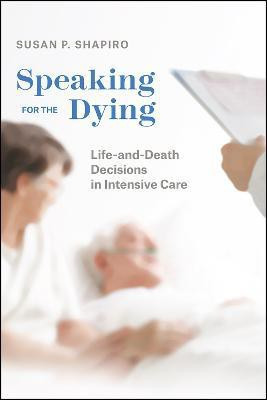Speaking for the Dying(English, Paperback, Shapiro Susan P)
Quick Overview
Product Price Comparison
Seven in ten Americans over the age of age of sixty who require medical decisions in the final days of their life lack the capacity to make them. For many of us, our biggest, life-and-death decisions-literally-will therefore be made by someone else. They will decide whether we live or die; between long life and quality of life; whether we receive heroic interventions in our final hours; and whether we die in a hospital or at home. They will determine whether our wishes are honored and choose between fidelity to our interests and what is best for themselves or others. Yet despite their critical role, we know remarkably little about how our loved ones decide for us. Speaking for the Dying tells their story, drawing on daily observations over more than two years in two intensive care units in a diverse urban hospital. From bedsides, hallways, and conference rooms, you will hear, in their own words, how physicians really talk to families and how they respond. You will see how decision makers are selected, the interventions they weigh in on, the information they seek and evaluate, the values and memories they draw on, the criteria they weigh, the outcomes they choose, the conflicts they become embroiled in, and the challenges they face. Observations also provide insight into why some decision makers authorize one aggressive intervention after the next while others do not-even on behalf of patients with similar problems and prospects. And they expose the limited role of advance directives in structuring the process decision makers follow or the outcomes that result. Research has consistently found that choosing life or death for another is one of the most difficult decisions anyone can face, sometimes haunting families for decades. This book shines a bright light on a role few of us will escape and offers steps that patients and loved ones, health care providers, lawyers, and policymakers could undertake before it is too late.


